And Put Up a Parking Lot
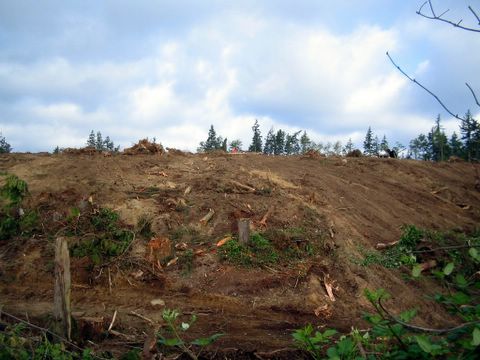
"Don't it always seem to go
That you don't know what you’ve got
‘Til it’s gone
They paved paradise
And put up a parking lot..."
Joni Mitchell
This blog is a collection of pictures I took one morning in June in my hometown of Everett, Washington.
It's intended to contrast two planning styles;
(a) keeping greenspace for public enjoyment, to enhance water quality, provide a wildlife sanctuary and all the other good things that trees and green spaces do for our planet and us
vs.
(b) Greed
The first set of pictures are what's left of a greenspace I used to pass by everyday. It's being cleared out for some sort of development. You have to understand the context of these pictures to understand my point.
These are pictures of some of the last remaining wild/greenspace in an urban environment, not pictures of one hillside among many green hillsides. It's sad to think of the kids who live by and play in this spot, the animals in those woods, the people who walked or drove by and enjoyed this spot and to think about a future where the only green/wild space left are controlled parks (rather than places wild animals can live, kids can catch tadpoles or the type of things you can do in a wild area).
The second set of pictures is another place I pass by most everyday. It's Forest Park, on 41st Street/Mulkilteo Blvd. in Everett. It's beautiful, has a lot of nice old trees and things for families to do. The people that set that 100 acre wood aside years ago, bless this generation with their foresighted thinking.
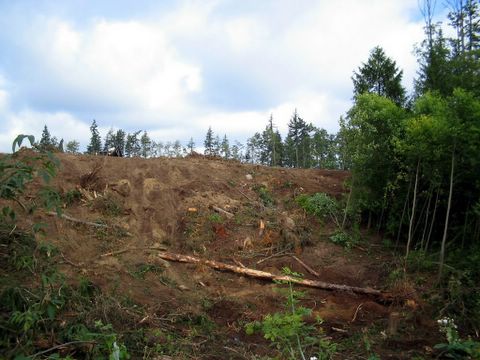
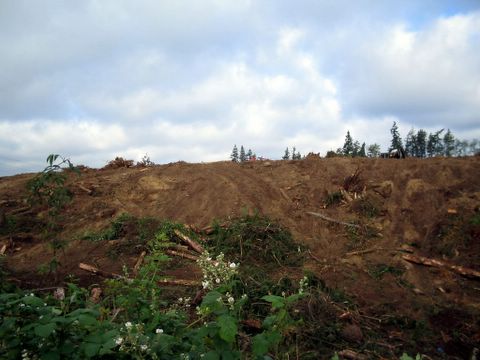
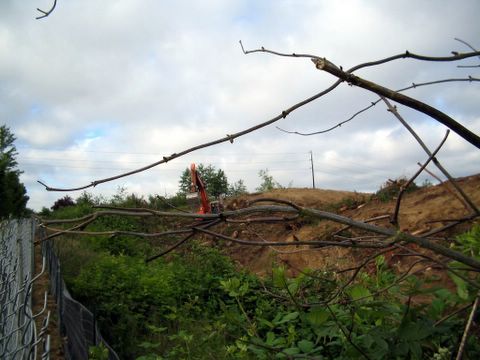
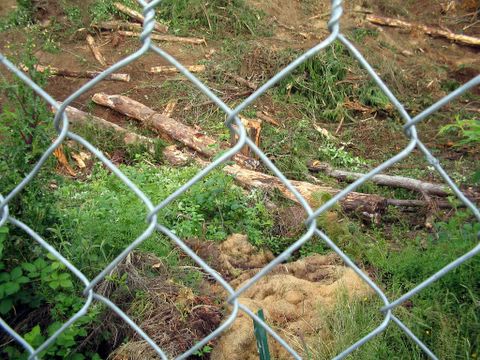
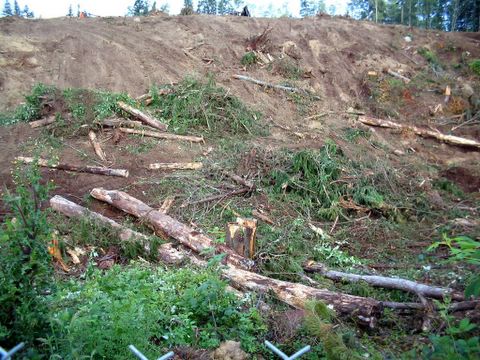
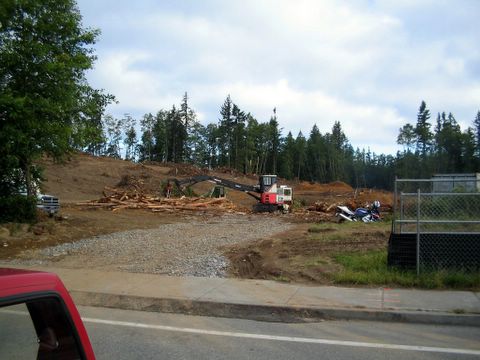
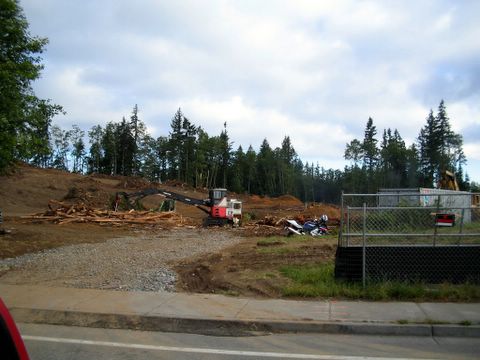
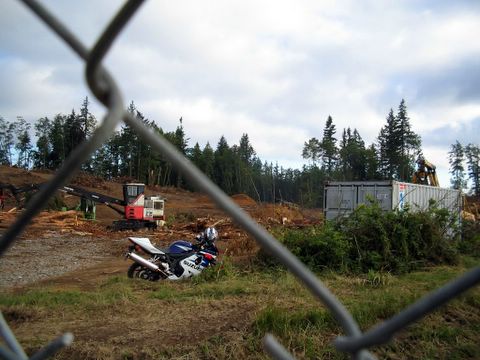
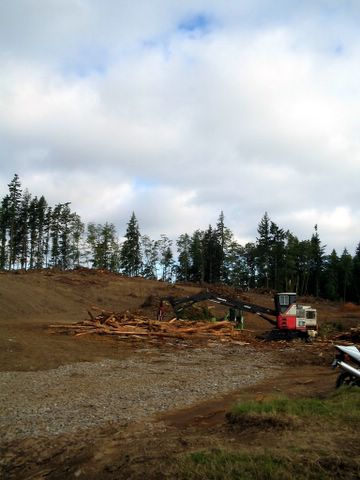
After looking at that hillside torn up and leveled in the name of "development", we switch to the quiet beauty of Forest Park...beginning with the picture below -
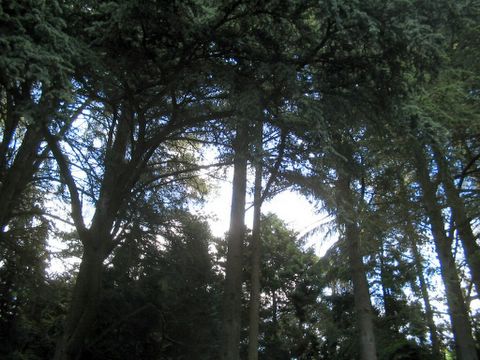
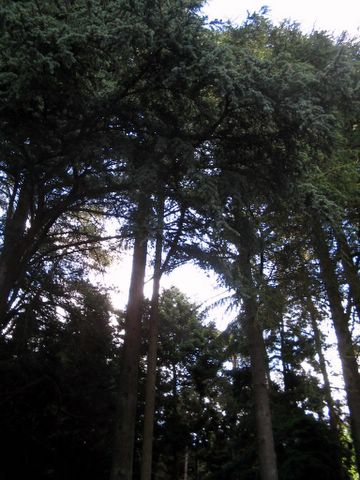
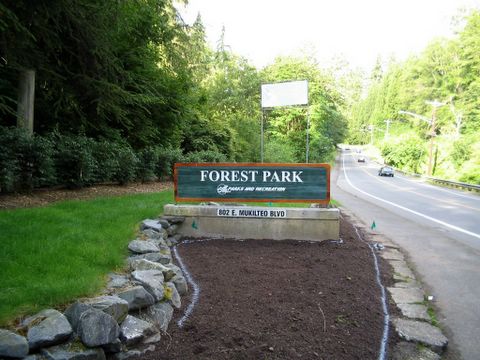
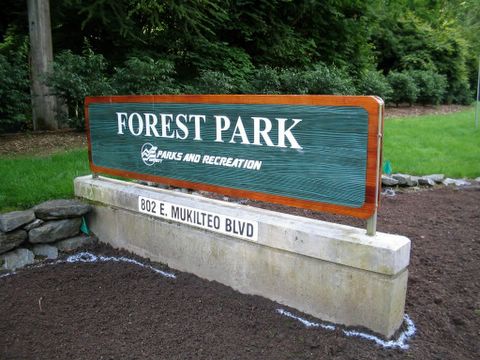
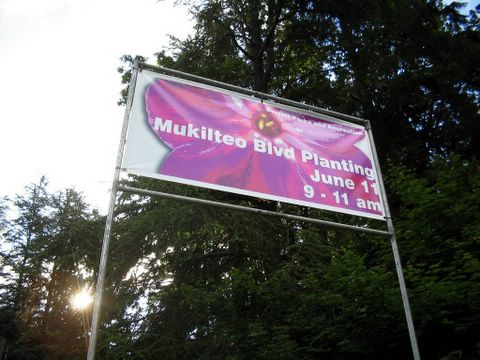
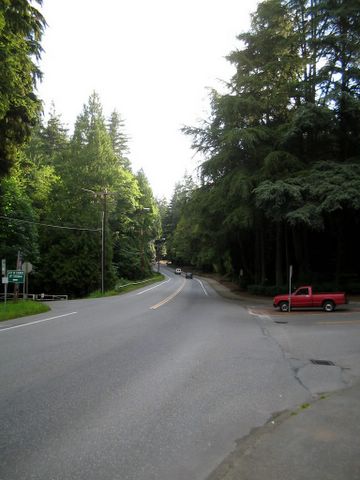
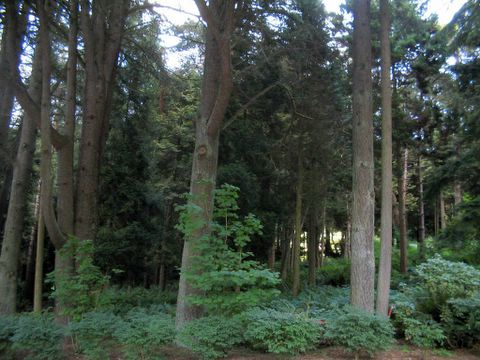
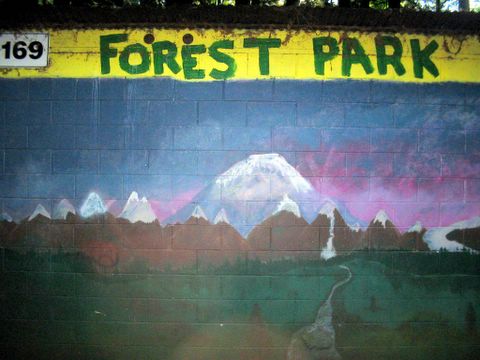

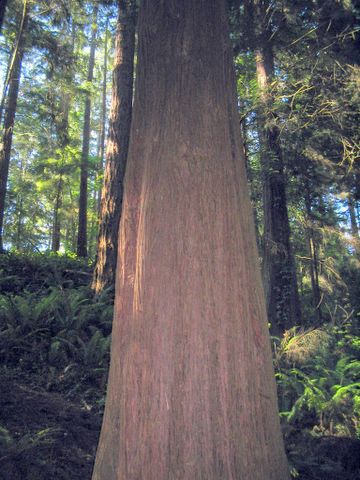
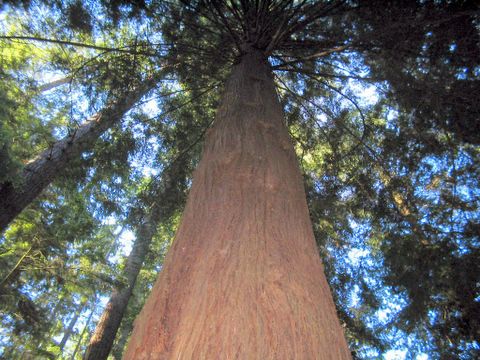
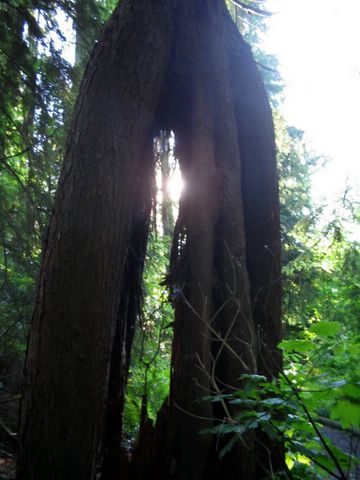

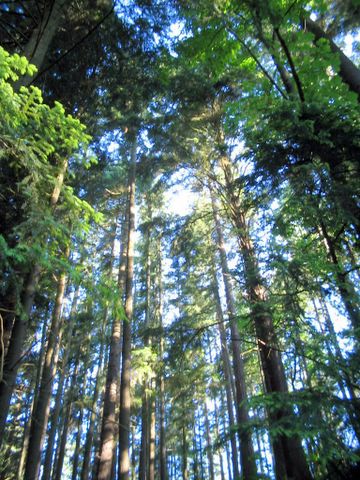
Some young artists painted the back of this shelter.
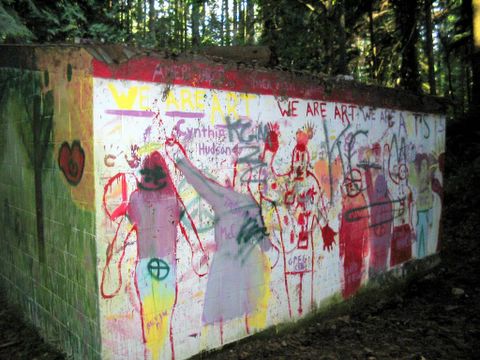

Back to the peaceful green...
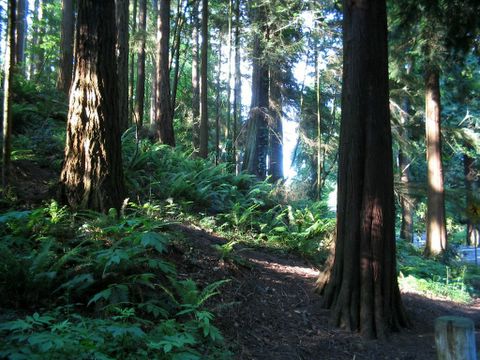

There are other ways to accomodate business and the environment than clear cutting hillsides and throwing up cheaply built houses and flat topped industrial parks. Ways that would make for more livable communities. We need a government supported by a progressive population that is willing to stand up for what is best for the common good rather than the interests of a special few.
People need communities not just houses. Businesses need to be placed in areas other than the last remaining greenspaces in rapidly growing urban areas. Removing the last quiet green spots in a city to put up ticky-tacky houses or flat topped industrial buildings is not smart, but it makes someone richer.
A simple plan would be to build communities with smaller footprint housing, common greenspaces, hiking/biking/walking trails, stores, churchs, schools and libraries. Common spaces for people to form community.
Build businesses on the corridors near highways, not six or seven miles from the highway (as in the case of this development) in what was previously a residential neighborhood overlooking a beautiful bay.
Where's Teddy Roosevelt when we need him? He took on the robber barons and corporate monopoly's in the 1900's, we need someone with his guts to look out for America today.
"Teddy Roosevelt took the view that the President as a "steward of the people" should take whatever action necessary for the public good unless expressly forbidden by law or the Constitution."
As President, Roosevelt held the ideal that the Government should be the great arbiter of the conflicting economic forces in the Nation, especially between capital and labor, guaranteeing justice to each and dispensing favors to none.
Roosevelt emerged spectacularly as a "trust buster" by forcing the dissolution of a great railroad combination in the Northwest. Other antitrust suits under the Sherman Act followed.
Roosevelt steered the United States more actively into world politics. He liked to quote a favorite proverb, "Speak softly and carry a big stick.
Some of Theodore Roosevelt's most effective achievements were in conservation. He added enormously to the national forests in the West, reserved lands for public use, and fostered great irrigation projects."
Source - Biography of Theodore Roosevelt
Pete Seeger sang about sprawl and it's effect on people -
"Little boxes on the hillside,
Little boxes made of ticky-tacky,
Little boxes, little boxes,
Little boxes, all the same.
There's a green one and a pink one
And a blue one and a yellow one
And they're all made out of ticky-tacky
And they all look just the same.
And the people in the houses
All go to the university,
And they all get put in boxes,
Little boxes, all the same.
And there's doctors and there's lawyers
And business executives,
And they're all made out of ticky-tacky
And they all look just the same.
And they all play on the golf-course,
And drink their Martini dry,
And they all have pretty children,
And the children go to school.
And the children go to summer camp
And then to the university,
And they all get put in boxes
And they all come out the same.
And the boys go into business,
And marry, and raise a family,
And they all get put in boxes,
Little boxes, all the same.
There's a green one and a pink one
And a blue one and a yellow one
And they're all made out of ticky-tacky
And they all look just the same."
Written by: Malvina Reynolds
Artist: Pete Seeger
From the album: We Shall Overcome (Pete Seeger at Carnegie Hall)
Originally released: 1963
Notes:
Malvina Reynolds was born in San Francisco in 1900, but spent most of her life in Berkeley. 'Little Boxes' was the most popular of Malvina Reynolds's many songs. Reynolds got the inspiration for 'Little Boxes' in 1961 while driving to an engagement in Palo Alto. Legend has it that she looked up at a pastel-colored Daly City hill-side and said to her husband: "Bud, take the wheel. I feel a song coming on."
Pete Seeger remembers meeting Reynolds in 1947 when she spoke to him at a hootenanny, saying: 'I'd like to try doing what you do, making up songs and singing them." Sixteen years later Seeger performed 'Little Boxes' at his Carnegie hall concert. The rest is folk music history.
Source - San Francisco Songs
